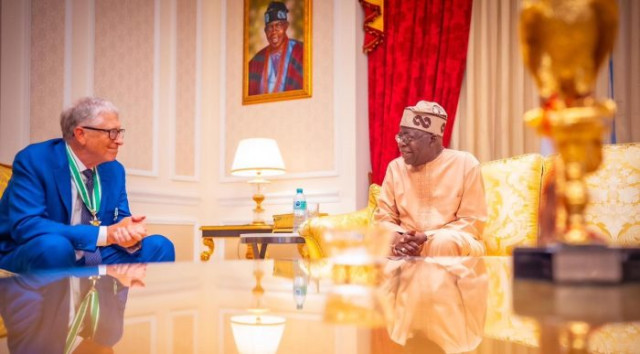US billionaire Bill Gates, who chairs the Gates Foundation, expressed that Nigeria’s health budget is insufficient to address the country’s health challenges.
He noted that health budgets will face significant pressure, especially due to aid cuts, indicating that “there will be less money for health in Nigeria next year than this year.”
In a recent interview with reporters in Lagos, coinciding with the inaugural Goalkeepers event hosted by the Gates Foundation in Nigeria, Gates highlighted that the limited funding contributes to Nigeria having the second-highest maternal and child mortality rate globally.
He remarked, “Nigeria’s expenditure on healthcare is very low. Therefore, it’s no surprise that that number wouldn’t decrease. When a mother delivers at home, certain complications remain unaddressed.”
Gates illustrated that countries like India enhance maternal care by ensuring deliveries occur in facilities equipped for C-sections, a process that requires funding.
In northern Nigeria, nearly half of births occur at home, and many facilities lack C-section capabilities, which perpetuates the maternal mortality issue.
He mentioned that the foundation is developing affordable tools, such as a new ultrasound device, to identify high-risk deliveries.
“Out of the 10 percent categorized as high-risk, we hope to transfer them to a medical facility, despite the challenges, leaving the remaining 90 percent in the community.”
Gates also discussed their bleeding intervention study, which had such a profound impact that it was concluded early, praising the remarkable doctor who led the research.
He pointed out that across almost all African nations, funding is decreasing, likely resulting in a significant rise in mortality rates.
Gates emphasized the foundation's ambitious goal to provide every child born in Nigeria with the same opportunities as those born in the wealthiest countries.
He acknowledged the current grim situation resulting from substantial reductions in aid budgets, often without notice.
“I will campaign to minimize these cuts or restore funding when possible, but there’s little I can do.”
Regarding the Gates Foundation's capacity to fill the financial gap left by US aid cuts in Nigeria, Gates remarked, “No one can equal the funding provided by the U.S. government. European funds are declining as well.
Germany and the U.K. have seen about a 40% reduction, largely due to financial commitments toward Ukraine or aging populations.”
He added, “The challenge for the Gates Foundation is that we lack an additional pool of funds. We spend more each year, and my funds will eventually run out.
Regardless of others’ financial movements, my spending remains fixed. Even if their funding rises or vanishes, I will continue to allocate my resources. Therefore, my contribution isn’t additional support.”
While Nigeria has managed to raise an extra $200 million, Gates emphasized that this amount pales compared to the disappearing funds.
He cautioned about potential cuts to UNICEF, Gavi, and the Global Fund, stating that this dire situation remains rarely discussed, but it is indeed critical.




















